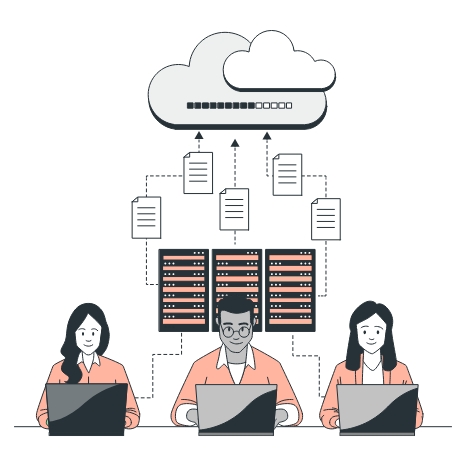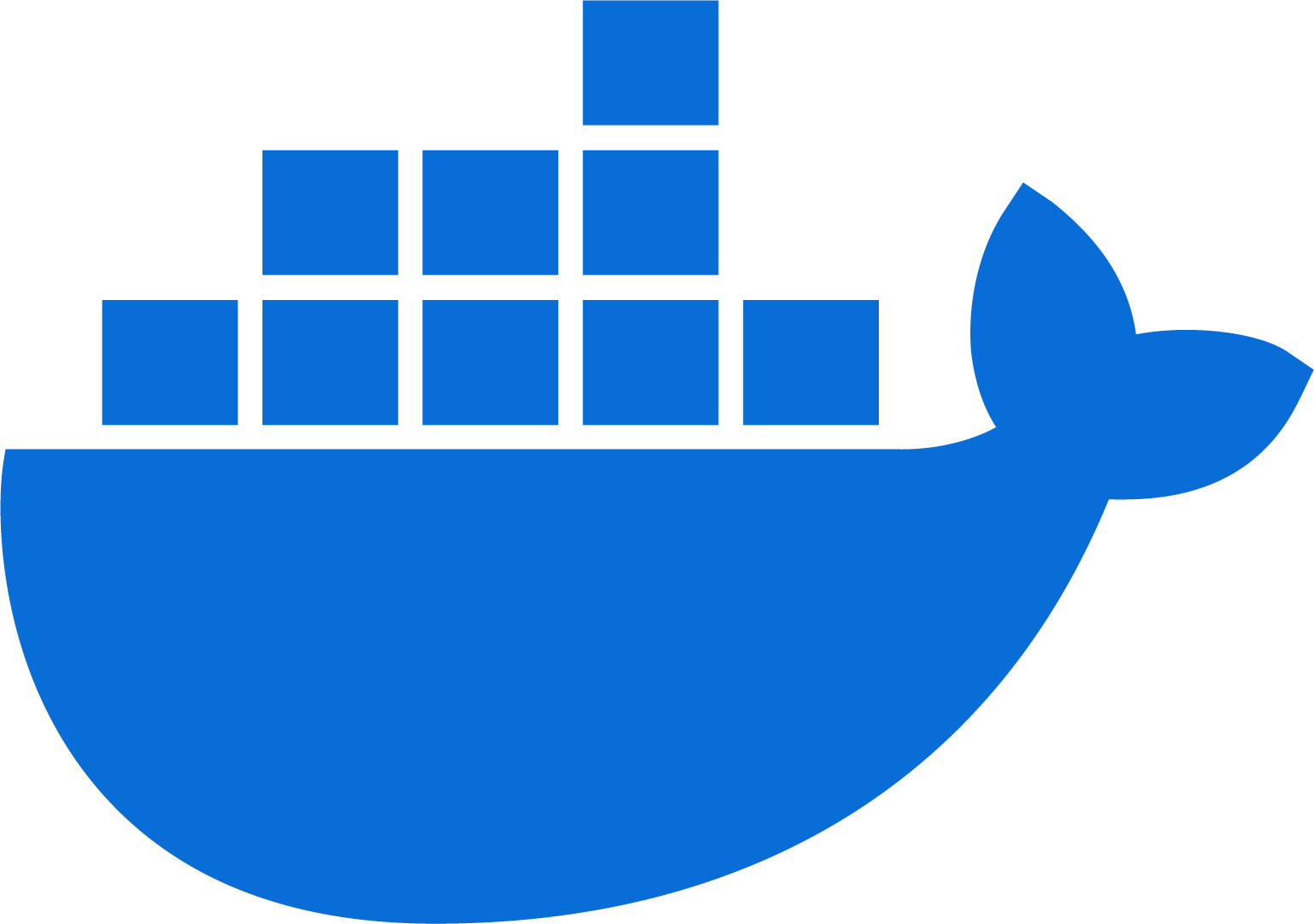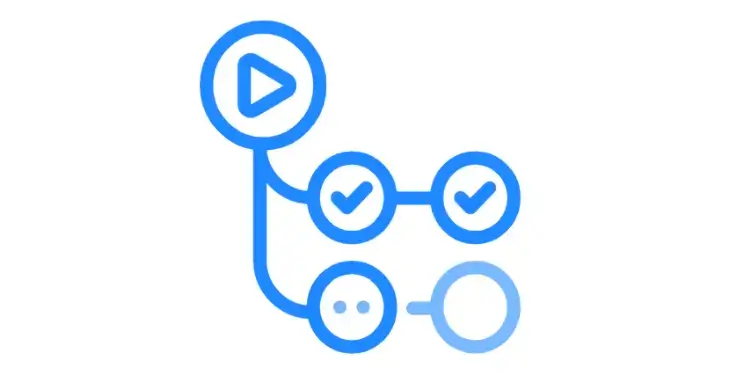Boost Developer Efficiency with Expert Cloud DevOps Consulting
Many businesses battle with inefficient cloud resource management, security vulnerabilities in robotized workflows, and challenges in scaling frameworks to adjust to evolving demands. Furthermore, integrating various tools and overseeing complex CI/CD pipelines can lead to operational bottlenecks and moderate down deployment cycles.
Cloud DevOps offers an arrangement by computerizing framework provisioning, nonstop integration, and conveyance, leading to speedier, more secure arrangements and way better asset administration. By empowering collaboration between development and operations groups, Cloud DevOps enhances innovation, improves scalability, and minimizes human error.
At NextGenSoft, we specialize in cloud DevOps engineering services, utilizing apparatuses like Terraform, Kubernetes, and Jenkins to robotize and optimize workflows. Our cloud DevOps management services provide streamlined operations, guaranteeing improved security and accelerated time-to-market for your applications. As a trusted DevOps consulting and managed cloud services provider, we offer custom-made arrangements that adjust with your particular trade and innovation needs.
Our cloud-native DevOps services and cloud-based DevOps services give adaptable, flexible infrastructure that meets the requests of cutting-edge businesses. As one of the leading cloud DevOps companies and a renowned DevOps development company, we offer DevOps end-to-end usage, guaranteeing consistent integration and nonstop enhancement. Partner with us for DevOps support company services and experience efficient, agile solutions that assist you in accomplishing your trade destinations. Believe our DevOps experts to deliver high-quality DevOps offerings to raise your organization’s cloud capabilities—reach out and Contact Us to get started.

Cloud DevOps Benefits
Enhanced Scalability and Elasticity
Cloud DevOps services uses cloud infrastructure to drive innovation faster, increase agility, enhance resource use, and improve efficiencies through automation, continuous delivery, and a shared focus on collaboration and innovation.
Increased Agility and Speed
Through pre-built cloud infrastructure for rapid application deployments, Infrastructure as Code for automated provisioning and version control, and faster update processes, Cloud DevOps management services enables faster time-to-market.
Improved Resource Utilization
Cloud DevOps allows for optimization of resource usage, as users can consume resources in a pay-as-you-go manner and resources can be dynamically assigned to applications as needed, reducing waste while maximizing cost efficiency.
Enhanced Innovation
Built on Cloud DevOps thrives on the latest innovations, leveraging cutting-edge cloud-native technologies, whilst allowing development teams to remain focused on core objectives, by shifting infrastructure management off on the cloud provider.
Improved Disaster Recovery and Business Continuity
Through redundant infrastructure, built-in fault tolerance mechanisms, and robust cloud-based data backup and recovery services, Cloud DevOps consulting services drive disaster recovery and business continuity by minimizing downtime and providing the means to maintain business operations.
Challenges of Traditional DevOps vs Cloud DevOps
Cloud DevOps Services: Offers the ability to utilize cloud infrastructure to increase innovation, improve agility, use resources more effectively, and to use automation, continuous delivery, and a collaborative and innovative focus to enhance overall efficiency.
Scalability Changes
Scalability in conventional environments is time-consuming and expensive, restricting quick growth and responsiveness.
Infrastructure Management Overhead
On-premises infrastructure requires time and resources to maintain, upgrade and secure.
Limited Access to Cutting-Edge Technologies
Traditional environments may limit access to new technologies and innovations.
Slower Time-to-Market
Deployments are also slower compared to traditional deployments, with a higher provisioning time and greater infrastructure complexity involved.
Best Practice for Cloud DevOps Service against Tradition DevOps
Adopt a Cloud-Native Approach
Embrace a Cloud-Native approach by architecting applications as microservices, utilizing serverless structures and containerization, and utilizing cloud-managed services from cloud providers wherever conceivable to diminish operational overhead.
Infrastructure as Code (IaC)
Use Terraform, AWS CloudFormation or Azure Bicep for Infrastructure as code (IaC), declaratively defining infrastructure to create, manage, and version infrastructure, check IaC scripts into version control, and make IaC scripts part of CI/CD pipelines for automated provisioning.
Dynamic Scaling and Resource Optimization
Use autoscaling to dynamically scale resources based on workload characteristics, and employ monitoring tools to detect and address underutilized resources for optimal cost-efficiency.
Shift-Left Security with DevSecOps
Shift-Left Security with DevSecOps—[Integrate Security Early in the Pipeline] by automating vulnerability scanning, dependency checks, and misconfiguration detection (using tools like Snyk, Aqua Securit,y or Prisma Cloud) to move towards cloud security in a more proactive manner.
CI/CD Pipeline Built for the Cloud
Implement CI/CD pipelines for Cloud-specific deployment patterns such as blue-green, canary, or rolling deployments and automate deployments to different regions for better high availability and disaster recovery.
Cloud-Specific Monitoring and Observability
Apply cloud-native monitoring tools such as AWS CloudWatch, Azure Monitor, or Google Cloud Operations Suite, and utilize distributed tracing and logging tools such as OpenTelemetry, ELK Stack, or Datadog to obtain in-depth insights into performance and detect problems within dynamic cloud environments.
Embrace Immutable Infrastructure
You can then employ the pattern of Immutable Infrastructure by deploying instances that you replace entirely with newer versions instead of modifying them directly, using image-based deployments such as AMIs or container orchestration platforms like Kubernetes.
Cloud Cost Management and Governance
Use cost tagging, and resource tracking, and utilize tools like AWS Budgets, Azure Cost Management, or FinOps platforms to implement strong cloud cost management and governance that allows to monitor how the costs are being spent and if they correspond to what is being used in reality.
Multi-Cloud and Hybrid Strategies
Support hybrid-cloud and multi-cloud solutions by creating versatile pipelines and dependable applications for expanded adaptability and organization success. To streamlines workflows and get rid-off repetitive tasks, use cloud-based tools like Kubernetes and more.
Serverless and Event-Driven Architecture
Serverless and event-driven architectures — Utilize AWS Lambda, Azure Functions, or Google Cloud Functions to build scalable, event-driven systems while outsourcing infrastructure management to the cloud provider and reducing operational burden.
Cloud DevOps Security
Automate checks of cloud provider guidelines and industry standards such as ISO 27001, SOC 2, or GDPR for continual compliance and auditing utilizing tools like AWS Config, Azure Policy, or HashiCorp Sentinel to enforce compliance while improving cloud security posture.
Latest Trends Cloud DevOps

Serverless Architectures
Trial the accelerated adoption of serverless platforms such as AWS Lambda, Google Cloud Functions, and Azure Functions for developing event-driven, scalable applications with tools such as Serverless Framework, AWS SAM, and Knative for simplified serverless deployments.

GitOps for Continuous Deployment
Adopt GitOps for perpetual deployments using Flux and ArgoCD for unavoidable infrastructure and software life-cycle management, Git is our once truth source for repeatable cloud-native deployments.

Multi-Cloud and Hybrid Cloud Strategies
Implement GitOps for continuous deployment with tools such as Flux and ArgoCD to enable declarative infrastructure and application management, where Git acts as the single source of truth, for a consistent and automated cloud-native deployment process.

Kubernetes and Cloud-Native Ecosystems
The evolution of Kubernetes containerization is driven by several emerging trends, including Service Mesh technologies (i.e., Istio, Linkerd) that enable advanced traffic control and observability, as well as Kubernetes Operators that facilitate automation of complex application deployment and lifecycle management.

AI-Driven DevOps (AIOps)
AI-Powered Cloud Management (AIOps) applies AI and ML to predictive analytics, anomaly detection, capacity planning, and response management in cloud environments, using tools like Dynatrace, New Relic, or Datadog AI Ops to automate incident resolution and improve overall observability.

Infrastructure as Code (IaC) Evolution
Infrastructure as code (IaC) is growing into high-level programming languages (Python, TypeScript, etc.) (with tools like Pulumi), and better collaboration between Dev and Ops (as made possible by policy-as-code platforms like Open Policy Agent (OPA) and HashiCorp Sentinel.

Policy-as-Code for Governance
Policy-as-Code frameworks are becoming increasingly popular, which automate compliance and governance checks for cloud deployments using tools such as Open Policy Agent (OPA) and AWS Service Control Policies (SCPs).

Observability with Distributed Systems
Complex distributed systems push the need for observability, thus everyone is planning advanced stacks for metrics+logs+traces(stack traces not code) integration, like OpenTelemetry, and real-time insights with cloud-native tools like Prometheus + Grafana + Jaeger.

FinOps (Cloud Cost Optimization)
FinOps and the increasing focus on it, where tools such as AWS Cost Explorer, and Spot. io, CloudHealth, you can pull the cost data into the pipeline accordingly, making them real-time and thus able to manage resources accordingly.

Chaos Engineering
Proactively testing application resilience in cloud-native environments through intentional and controlled failures is gaining traction with Chaos Engineering tools such as Gremlin and LitmusChaos.

Automation of Everything (XOps)
XOps combines DevOps, SecOps, DataOps, AIOps, in an integrated pipeline pipeline automation across all operational domains, through tools like Red Hat Ansible, HashiCorp Terraform, as a mechanism for automating across multiple clouds consistently.

Service Mesh for Microservices Management
Best AI Development Services for your Business with DevOps-Powered AI Development Services A superior way to create, prototype, and deploy profoundly useful AI solutions.
Why NextGenSoft?
End-to-End Expertise
Partner with NextGenSoft, a global digital transformation company, and leverage our multi-cloud engineers’ abilities. As a trusted IT solutions provider, we build up secure inter-cloud networks, map native cloud services, and make vendor-agnostic methodologies to maximize esteem and minimize dangers.
Delivery Excellence
We rethink conveyance fabulousness with optimized program lifecycles. From advancement to arrangement, our digital transformation services and solutions focus on dependable, high-quality discharges that enhance client satisfaction.
Flexible Hiring Model
NextGenSoft’s adaptable contracting models give access to talented IT service providers custom-fitted to your needs. Scale easily with agile assets for DevOps, guaranteeing consistent collaboration and venture victory.
Transparent Actions
Our commitment to straightforwardness builds trust and fosters collaboration. As a leading digital transformation company in India, we ensure aligned objectives, open communication, and effective teamwork for shared success, as demonstrated in our Case Studies.
The Backbone of Our Digital Excellence
- Source Code Management
- Container Orchestration
- Container Registry
- CI/CD Tools
- Test Automation Tools
- Monitoring Tools
- Automation Scripting
- Cloud Platforms
- Kubernetes
Source Code Management
Container Orchestration
Docker
Docker Swarm
Kubernetes
Openshift
Container Registry
Docker Hub
Amazon ECR/Google GCR/Azure ACR
Nexus Repository
JFrog Artifactory
GitHub Packages
GitLab Container Registry
CI/CD Tools
GitHub Actions
GitLab CI/CD
Jenkins
Azure DevOps
Google Cloud Build
AWS CodePipeline
Test Automation Tools
Selenium
Cypress
Appium
Junit/TestNG
POSTMAN
Load Runner
Monitoring Tools
ELK
Prometheus
Grafana
Fluentd
Datadog
New Relic
Nagios
Automation Scripting
Bash
Python
PowerShell
Perl
YAML/JQ
Cloud
AWS
Azure
GCP
DigitalOcean
Private clouds
Kubernetes
Helm Packages
Istio and Linkerd
Karpenter
Kyverno Policy Engine
Falco
Traefik
Flux CD
Argo CD
ELK
styra
Cloud DevOps Strategy

Define Goals and Requirements
To begin, have a clear understanding of your business objectives (scale, availability, downtime concern, etc), a well-known understanding of your application architecture, its dependencies, and resource utilization followed by a proper understanding of the regulation and security requirements of your organization is having or will have.
Assess Current Infrastructure and Workflows
Audit CI/CD pipelines, framework, and sending processes to pick up a clear understanding of the existing environment, identify zones of inefficiency such as manual steps, downtime, or need of checking, and evaluate application availability for cloud-native architectures such as microservices and serverless.
Plan for Cloud-Native Architectures
Architect for cloud-native, scale, and unwavering quality by grasping microservices or serverless models, containerization (e.g., Docker) for steady organizations, managed services to constrain operational overhead and multi-region deployments for high accessibility.
Implement Infrastructure as Code (IaC)
Through Infrastructure as Code (IaC), mechanize the provisioning and administration of cloud assets utilizing tools like Terraform, AWS CloudFormation, or Pulumi, store IaC setups in adaptation control (e.g. Git), and integrate IaC into CI/CD pipelines for reliable and repeatable deployments.
Build CI/CD Pipelines
Utilize these devices in CI/CD pipelines to automate integration, test, and arrangement workflows, set up automated tests (unit, integration, performance), enable dynamic arrangement (blue-green, canary, rolling), and automate rollbacks in case of disappointments.
Adopt Observability and Monitoring
Use tools like Prometheus, Grafana, or AWS CloudWatch to collect metrics, set up distributed tracing (like OpenTelemetry) to learn about system conditions, design centralized logging with tools like ELK Stack or Datadog, and set up alerts for key performance indicators (KPI) like inactivity and blunder rates. Complete perceptibility and real-time perceivability should be integrated into applications and infrastructure.
Integrity Security (DevSecOps)
Enforce security throughout the DevOps lifecycle (DevSecOps) by automating scans for code, containers, and dependencies with Snyk or Aqua, secret management tools (e.g., HashiCorp Vault, AWS Secrets Manager) for sensitive information, policies-as-code with Open Policy Agent (OPA) or HashiCorp Sentinel, and ongoing vulnerability and misconfiguration detection within cloud environments.
Optimize Costs and Resources
Use cloud-native cost management tools (e.g., AWS Cost Explorer, Azure Cost Management), resource tagging, auto-scaling, and spot instances to assist with resource usage and price tracking and reporting, and optimize the storage tiers (e.g., AWS S3 Intelligent-Tiering) to minimize overall cloud spend.
Conduct Chaos Engineering
Implement Chaos Engineering to verify the resiliency of your systems through tools such as Gremlin or LitmusChaos simulating failures like node failures, network latency, or scaling failures increasing confidence about system recovery and meeting reliability goals.
Implement Feedback Loops
Enable continual improvement via actionable insights by frequently evaluating performance metrics (e.g., deployment frequency, MTTR), soliciting feedback from developers, operations and stakeholders, and holding post-mortems for incidents so that learning can be assimilated into workflows.
Foster Continuous Learning and Innovation
Enable continuous improvement and experimentation with cloud solutions by enabling and organizing cloud platform-related workshops, training, and certifications for team members while keeping the team up to date on relevant emerging technologies and frameworks (e.g., Kubernetes, serverless, etc.) and supporting proof-of-concept projects.
Elevate Your Cloud DevOps with Our Specialized Services

Advanced CI/CD Pipelines
Leverage powerful CI/CD solutions like GitHub Actions, GitLab CI/CD, and CircleCI to streamline your software delivery process with features like parallel builds and automated deployments.

Kubernetes and Container-Oriented Services
Streamline Container Orchestration with Our Expert Kubernetes Services. Experience automated scaling, self-healing, and efficient workload distribution for your containerized applications on platforms like Amazon EKS, Azure AKS, Google GKE, and more.

Serverless Application Development
Unlock the Power of Serverless Computing. Develop and deploy scalable, event-driven applications with ease. Our serverless services abstract infrastructure management, enabling you to focus solely on your code.Leverage popular platforms like AWS Lambda, Azure Functions, Google Cloud Functions, and Knative for serverless deployments.

DevSecOps Services
Enhance Security with DevSecOps. Integrate security seamlessly into your DevOps workflows. Our services include automated vulnerability scanning, policy-as-code enforcement, and runtime threat detection. Leverage leading tools like Snyk, Aqua Security, Prisma Cloud, and HashiCorp Vault for comprehensive cloud security.

Infrastructure as Code (IaC) Services
Simplify Cloud Infrastructure Management with IaC. Our services leverage tools like Terraform, AWS CloudFormation, and Pulumi to automate provisioning, manage infrastructure declaratively, and ensure consistent deployments across multiple clouds. Experience the power of version control, policy-driven governance, and repeatable infrastructure deployments.

Observability and Monitoring Services
Gain Deep Visibility with Our Observability Services. Ensure system health and performance with distributed tracing, real-time dashboards, and predictive analytics using AI/ML. Our offerings leverage leading platforms like Datadog, New Relic, and Dynatrace, along with open-source solutions like Prometheus and Grafana, and standardized data collection with OpenTelemetry.

Multi-Cloud Management Services
Simplify Multi-Cloud Management. Our services enable seamless management of workloads across AWS, Azure, GCP, and more. Gain flexibility, avoid vendor lock-in, and optimize costs with unified management, application portability, and enhanced resource optimization. Leverage platforms like Anthos, Azure Arc, HashiCorp Consul, and Crossplane for streamlined multi-cloud operations.

FinOps and Cloud Cost Optimization
Optimize Cloud Costs with FinOps Expertise. Reduce expenses without sacrificing performance. Our services leverage real-time cost tracking, resource optimization, and reserved/spot instance management. Utilize tools like AWS Cost Explorer, Azure Cost Management, Spot.io, and Kubecost to gain control over your cloud spending.

AI-Powered DevOps (AIOps)
Revolutionize DevOps with AI/ML. Leverage AIOps to enhance automation, predict and resolve incidents proactively, and optimize resource allocation. Our services utilize AI-powered platforms like Dynatrace AI, New Relic AI, and Datadog AIOps, along with solutions like AWS DevOps Guru and Moogsoft, to deliver intelligent insights and drive operational excellence.

Chaos Engineering as a Service
Build Resilient Systems with Chaos Engineering. Test the limits of your applications with our Chaos Engineering services. Simulate real-world failures like outages, latency, and resource constraints to identify and mitigate vulnerabilities. Leverage tools like Gremlin and LitmusChaos to enhance system resilience and minimize downtime.
FAQs
-
What is cloud DevOps?
Cloud DevOps integrates cloud computing with DevOps practices, empowering streamlined development, deployment, and management of applications in cloud situations. It ensures quicker delivery, versatility, and unwavering quality with custom DevOps solutions for particular business needs. -
Does cloud DevOps need coding?
Yes, cloud DevOps services frequently require coding for automating tasks, infrastructure management, and CI/CD pipelines. Proficiency in scripting languages like Python, Bash, or YAML is basic for effective DevOps cloud services. One can get excellent coding support by partnering with cloud DevOps companies like NextGenSoft. -
What are cloud consulting services?
Cloud consulting services give key counsel to businesses for embracing and optimizing cloud technologies. They incorporate migration planning, cloud DevOps consulting services, cost optimization, and infrastructure design tailored to meet organizational goals. -
What is the difference between cloud services and managed cloud services?
Cloud services offer on-demand assets like storage and computing, while managed cloud services provide end-to-end solutions, including observing, optimization, and DevOps support services, ensuring consistent operations. -
What does a cloud DevOps engineer do?
A cloud DevOps design implements and maintains cloud and DevOps services, automates deployments, ensures system adaptability, and optimizes cloud resources, supporting businesses with dependable DevOps end-to-end implementation. Deal with one of the DevOps companies in the USA to get the best engineer for your tasks. -
What are cloud engineering services?
Cloud engineering services focus on designing, building, and managing cloud infrastructures. These services incorporate executing cloud-native DevOps services for businesses to ensure strong, adaptable, and cost-effective cloud solutions.
Contact us

Submit Your Inquiry

Detailed Proposal

Collaborate and Plan













































